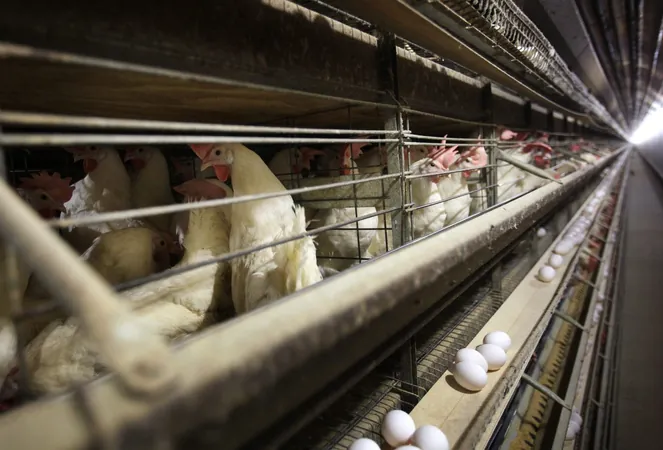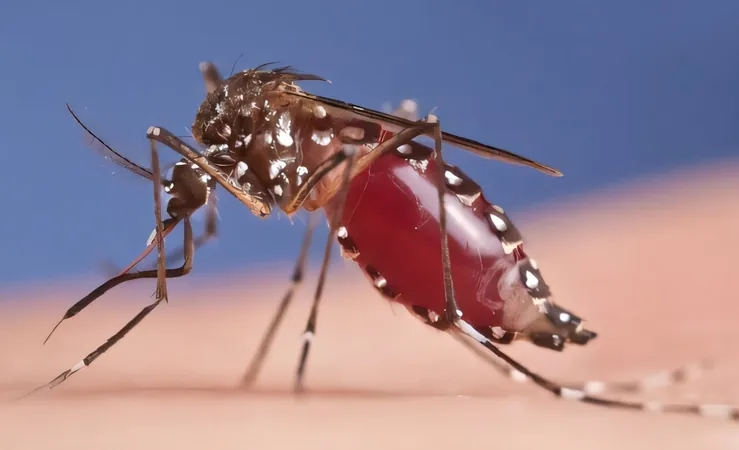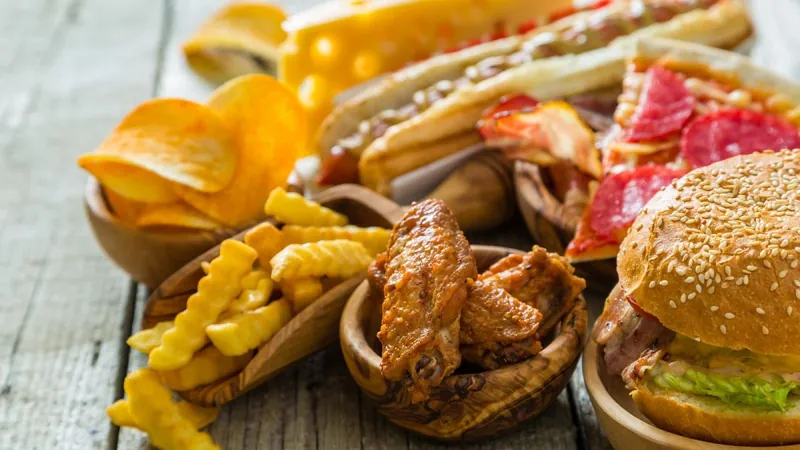
Urgent Call to Action: BC's Chief Vet Demands Bird Clinics Combat Avian Flu Threat
2024-11-15
Author: Noah
BC's Chief Veterinarian's Warning
British Columbia's chief veterinarian, Dr. Theresa Burns, has issued a critical warning to wildlife clinics: they must implement stringent protocols to curb the spread of avian flu, especially in light of recent alarming developments concerning human exposure to the virus.
New Protocols Needed
In an assertive letter sent to veterinary clinics last week, Dr. Burns highlighted a troubling spike in reports of sick and dead wild birds throughout the province. She stressed the necessity for clinics that specialize in treating wild birds to establish robust safety procedures. Additionally, she urged them to ensure that staff members receive adequate training and are equipped with proper protective gear.
Human Cases Trigger Urgency
The urgency of this message follows the announcement from B.C. health authorities of the first human case of bird flu acquired within Canada. The teenage patient is currently in critical condition, igniting fears regarding the human-animal transmission of the H5N1 virus.
Safety Measures
Dr. Burns indicated that any interaction with potentially infected birds should be conducted with extreme caution. Sick birds must be isolated from humans and other animals to prevent the spread of the illness. Those who must handle these birds are required to wear comprehensive protective gear, including gowns, gloves, and eye protection.
Environmental Testing Findings
Environmental testing in wetland areas frequented by wild birds has recorded alarming levels of the H5N1 avian influenza virus. However, current assessments show that the reported cases of infected wild birds remain consistent with the figures from 2022 and 2023. The commercial poultry industry in British Columbia, on the other hand, has not been as fortunate.
Impact on Poultry Industry
The province is grappling with severe consequences from avian flu outbreaks, impacting 28 flocks as migratory birds make their way south for the winter. Since the spring of 2022, over 6.5 million birds have been culled to control the spread of the virus. As of now, 26 farms are facing active outbreaks, prompting further action from authorities.
Farmers Affected
Shawn Hall, spokesperson for the BC Poultry Association, described the situation as heartbreaking for farmers, many of whom maintain deep connections with their animals and local food production. "No farmer wants to experience an infection on their property," he lamented. "This is devastating for everyone involved."
Increased Safety Protocols
In a bid to enhance safety, farms have instituted heightened protocols, including the use of improved protective gear by staff and a complete ban on visitor access to poultry operations.
Ongoing Monitoring
As officials work to understand the source of the recent human infection—remarkably without any ties to farm operations—the community watches with bated breath. Preventing further outbreaks and protecting both livestock and public health remains a top priority for British Columbia's veterinarians and poultry farmers alike. The clock is ticking, and immediate action is paramount!









 Brasil (PT)
Brasil (PT)
 Canada (EN)
Canada (EN)
 Chile (ES)
Chile (ES)
 España (ES)
España (ES)
 France (FR)
France (FR)
 Hong Kong (EN)
Hong Kong (EN)
 Italia (IT)
Italia (IT)
 日本 (JA)
日本 (JA)
 Magyarország (HU)
Magyarország (HU)
 Norge (NO)
Norge (NO)
 Polska (PL)
Polska (PL)
 Schweiz (DE)
Schweiz (DE)
 Singapore (EN)
Singapore (EN)
 Sverige (SV)
Sverige (SV)
 Suomi (FI)
Suomi (FI)
 Türkiye (TR)
Türkiye (TR)